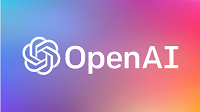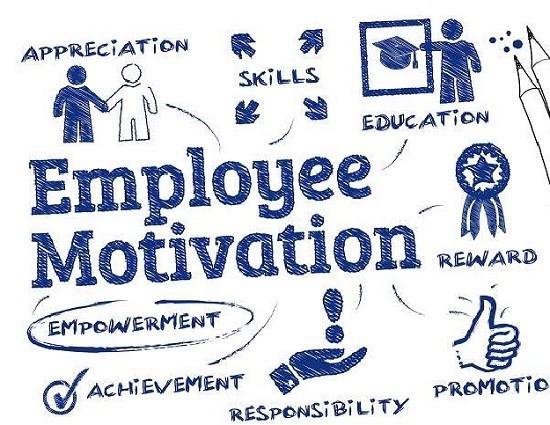
ChatGPT Recruiting
ChatGPT Recruiting: Finding the Right Talent with Artificial Intelligence
As the business world becomes increasingly digitized, organizations are constantly searching for new ways to streamline their operations and stay ahead of the competition. One area where companies are turning to technology is in their recruitment efforts, and ChatGPT Recruiting is leading the way in this field with their cutting-edge AI-powered recruiting tools.
ChatGPT is an artificial intelligence language model developed by OpenAI that has been trained on massive amounts of data to understand human language and respond to a wide range of queries. The ChatGPT Recruiting model has proven to be highly effective in natural language processing tasks, including conversational agents, question answering systems, and machine translation.
One of the most exciting applications of ChatGPT is in the area of recruiting. By leveraging its natural language processing capabilities, ChatGPT Recruiting can analyze job descriptions and candidate profiles to identify the best candidates for a particular role. This is done by looking for keywords, matching skills and experience, and even analyzing the tone and sentiment of candidate communications to gauge their level of interest and fit.
ChatGPT Recruiting can automate many of the time-consuming tasks involved in the hiring process, such as pre-screening candidates, scheduling interviews, and sending follow-up emails. This frees up their time to focus on more strategic tasks, such as building relationships with candidates and developing their employer brand.
Another advantage of ChatGPT recruiting is that it can help eliminate unconscious bias. Traditional recruiting methods often result in a homogeneous workforce, as recruiters tend to favor candidates who are similar to themselves. ChatGPT, on the other hand, uses a data-driven approach to evaluate candidates, focusing on objective criteria such as skills and experience rather than subjective factors like gender, race, or age.
In addition to its natural language processing capabilities, ChatGPT also has the ability to learn from feedback. This means that over time, it can refine its algorithms to better match candidates with job descriptions and provide more accurate recommendations to recruiters.
Of course, there are some potential downsides to using AI for recruiting. Critics argue that AI may reinforce existing biases if the data it is trained on is biased. There are also concerns around privacy and data security, as the use of AI in recruiting involves analyzing vast amounts of personal data.
However, companies like ChatGPT are working to address these issues by using transparent algorithms and incorporating ethical considerations into their software development processes. They are also providing guidance and training to recruiters to ensure that they are using the technology in a responsible and ethical manner.
ChatGPT is an exciting new development in the world of recruiting. Its natural language processing capabilities and ability to learn from feedback make it an effective tool for identifying the best candidates for a particular role. While there are certainly challenges to using AI in recruiting, companies like ChatGPT are working to overcome them and harness the power of technology to build more diverse and effective teams

The recruitment landscape has been transformed by advancements in technology, with ChatGPT Recruiting playing a pivotal role in streamlining various aspects of the hiring process. One area where AI has made significant strides is in resume sourcing. By harnessing the power of AI and ChatGPT Recruiting, recruiters can now efficiently and effectively identify the most qualified candidates from a vast pool of resumes. This article explores the benefits and implications of using AI for resume sourcing and its potential to revolutionize the recruitment industry.
- Enhanced Efficiency:
Resume sourcing traditionally involves manual screening and sorting of numerous resumes, which can be time-consuming and prone to human error. AI-powered resume sourcing algorithms leverage natural language processing (NLP) and machine learning to automate this process. By analyzing resumes and extracting relevant information, AI algorithms can swiftly filter and rank candidates based on predefined criteria, significantly reducing the time and effort required by recruiters.
- Improved Candidate Match:
AI algorithms excel at analyzing and interpreting large volumes of data. When it comes to resume sourcing, AI systems can match job requirements with candidate profiles, identifying key skills, qualifications, and experience. This level of precision ensures that recruiters are presented with a curated list of candidates who closely align with the job criteria, increasing the chances of finding the right fit for a role.
- Bias Mitigation:
Unconscious bias in recruitment can lead to unfair and discriminatory practices. AI-powered ChatGPT Recruiting helps mitigate bias by focusing on objective criteria rather than subjective factors. These algorithms are trained on diverse datasets to ensure fair assessment, reducing the risk of human biases influencing candidate selection. However, it’s essential to continually monitor AI systems to ensure fairness and avoid the perpetuation of existing biases in the algorithms.
- Scalability:
As businesses grow and job openings multiply, the volume of resumes received can quickly become overwhelming for recruiters. AI-powered resume sourcing enables seamless scalability, allowing recruiters to handle large applicant pools without compromising efficiency. The algorithms can quickly process and rank resumes, ensuring that no candidate is overlooked and that the recruitment process remains swift and manageable.
- Continuous Learning:
AI systems improve over time through continuous learning. By analyzing feedback from recruiters regarding candidate selection and outcomes, AI algorithms can adapt and refine their sourcing criteria. This feedback loop enhances the accuracy of candidate matching and helps recruiters make data-driven decisions, ultimately improving the quality of hires and reducing turnover.
- Personalized Candidate Engagement:
Beyond resume sourcing, AI can personalize candidate engagement. Chatbots and virtual assistants can interact with candidates, answering frequently asked questions, providing updates on application status, and collecting additional information. This personalized experience enhances the candidate journey and fosters a positive impression of the organization, even before the interview stage.
Resume sourcing is a critical step in the recruitment process at SourceCandidates, and AI and ChatGPT Recruiting has emerged as a game-changer in this realm. By leveraging the power of AI algorithms, recruiters can efficiently sift through large volumes of resumes, identify top candidates, and mitigate bias. The benefits of AI-powered resume sourcing and ChatGPT Recruiting include enhanced efficiency, improved candidate matching, scalability, continuous learning, and personalized candidate engagement. As AI continues to evolve, it holds immense potential to revolutionize recruitment, allowing organizations to source talent more effectively, save time and resources, and make data-driven hiring decisions that drive business success.
Search for AI Jobs at Stemta.com STEM Jobs






Responses